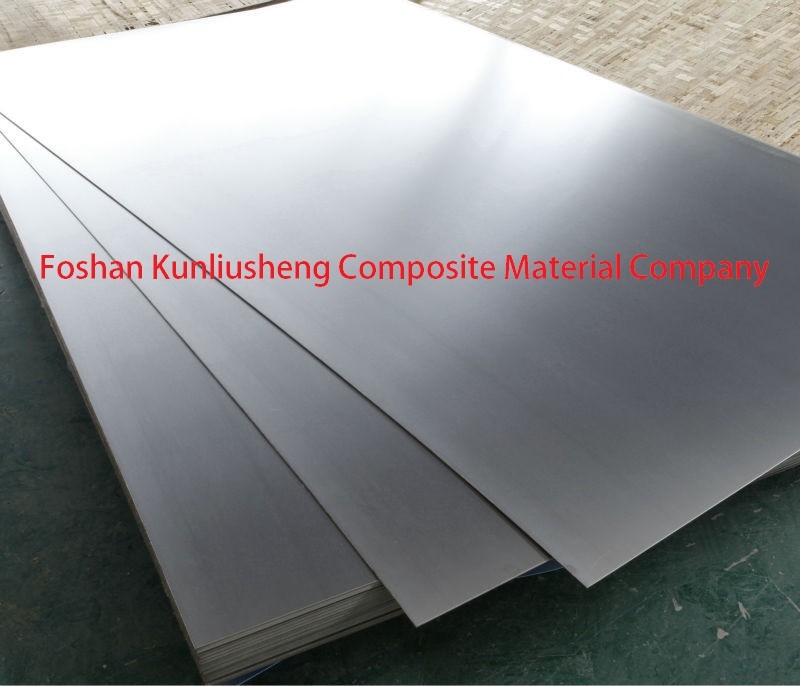Titanium plate is an important metal material with a variety of unique properties and a wide range of applications.
Titanium plates are available in a wide range of thicknesses, from an extremely thin 0.1mm to an extremely thick 35mm. This shows the flexibility of the titanium plate in the application, able to adapt to different fields and specific needs.
The thickness range of thin titanium plate includes 0.1mm, 0.15mm, 0.2mm, 0.3mm, 0.4mm, 0.5mm, 0.8mm, 1.0mm, 1.5mm, etc.
Thicker titanium plates can reach 10mm, 20mm, or even thicker.
Titanium plate can also be further subdivided into thick plate (thickness greater than 25.4mm), titanium medium plate (thickness of 4.76-25.4mm), and titanium sheet (less than 4.76mm) according to thickness.
1. High strength and low density
Titanium plate has the characteristics of high strength and low density, which makes it an excellent lightweight and high-strength material. Compared with aluminum alloy, titanium plate has higher strength, but the density is only about half, so it has a wide range of applications in aerospace, automobile manufacturing and other fields.
2. Strong corrosion resistance
Titanium plates have extremely strong corrosion resistance, especially in oxidizing media. It is not easy to rust and can be used for a long time in harsh environments, so it is widely used in chemical industry, marine engineering and other fields.
3. Good high temperature performance
Titanium sheets can work at high temperatures, and even at high temperatures of around 600°C, they can still maintain their excellent mechanical properties. This makes it widely used in high-temperature environments such as high-temperature furnaces and aero engines.
4. Good biocompatibility
Titanium plates have good biocompatibility and can be fully accepted by human tissues, so they are widely used in medical fields, such as dental implants, artificial joints, etc.

1. Aerospace field
Titanium plates have a wide range of applications in the aerospace field, such as manufacturing aircraft fuselages, engine parts, bolts, etc. Due to the characteristics of high strength, high corrosion resistance and light weight, titanium plate can reduce the weight of the aircraft, improve the fuel efficiency of the aircraft, and thus reduce the pollution to the environment.
2. Medical field
Titanium plates are also widely used in the medical field, such as the manufacture of prostheses, dental implants, surgical tools, etc. Because titanium plates have good biocompatibility and can be fully combined with human tissues, they have been widely used in the medical field.
Additional reading:3. Chemical industry
Titanium plates are widely used in the chemical industry, such as manufacturing chemical equipment, storage tanks, pipelines, valves, etc. Because titanium plates have extremely strong corrosion resistance and can be used for a long time in harsh chemical environments, they are widely used in the chemical industry.
4. Other areas
In addition to the above fields, titanium plates are also widely used in construction, automobiles, electric power and other fields. In the field of construction, titanium plate can be used as decorative panels, roofing materials, etc.; In the automotive field, titanium plates can be used to manufacture lightweight body parts, engine parts, etc.; In the field of electric power, titanium plates can be used to make coolants for nuclear power plants, etc.
In China, titanium plates are mainly made by sheet rolling methods, and the plates produced are divided into hot-rolled titanium plates and cold-rolled titanium plates.
1. Production of hot-rolled titanium plate:
The temperature of hot rolling is high, the amount of pass pressure is large, the production efficiency is high, suitable for the production of medium and thick plates, the temperature window of titanium processing is narrow, and hot rolling requires a hot rolling mill of higher tonnage, and it is also equipped with high-precision and high-temperature heating furnaces. Roll-over rolling is mainly used in the production of wide sheets, while overlay roll-rolling is mainly used in the production of titanium alloy sheets.
2. Production of cold-rolled titanium plate
There are three main characteristics of titanium plate cold rolling:
(1) Work hardening is more significant than that of general metals, and the deformation resistance is larger;
(2) In the process of cold rolling, the roll is subjected to great pressure, resulting in large elastic deformation, and the wear is fast, and it is easy to produce uneven deformation, resulting in the unevenness of the crack edge and size of the plate;
(3) In order to obtain products with high surface quality, rolls with high finish and slabs with good surface condition are required, and good lubrication conditions are also required.
3. Production of titanium strip coils
Roll production is the most effective method to produce titanium plates and low-alloyed titanium alloy sheets and titanium strips with high efficiency, high quality and low cost. The incoming production line should include a hot continuous rolling coil system; Big 20 rolling cold rolling system, continuous sandblasting, pickling, degreasing, washing system; Vertical tension continuous annealing system and continuous surface treatment system.
With the continuous progress of science and technology and the continuous improvement of people's requirements for material performance, titanium plate, as an excellent metal material, has broad prospects for future development. In the future, titanium plates will be applied in more fields, such as marine engineering, new energy and other fields. At the same time, with the continuous development of titanium alloy technology, the performance of titanium plate will also be further improved, so as to better meet people's needs.
In conclusion, as an important metal material, titanium plate has a variety of unique properties and a wide range of applications. In the future, with the continuous progress of science and technology and the continuous improvement of people's requirements for material performance, titanium plate will be applied in more fields and play a more important role.
Related Articles
Comments
Please Join Us to post.
0